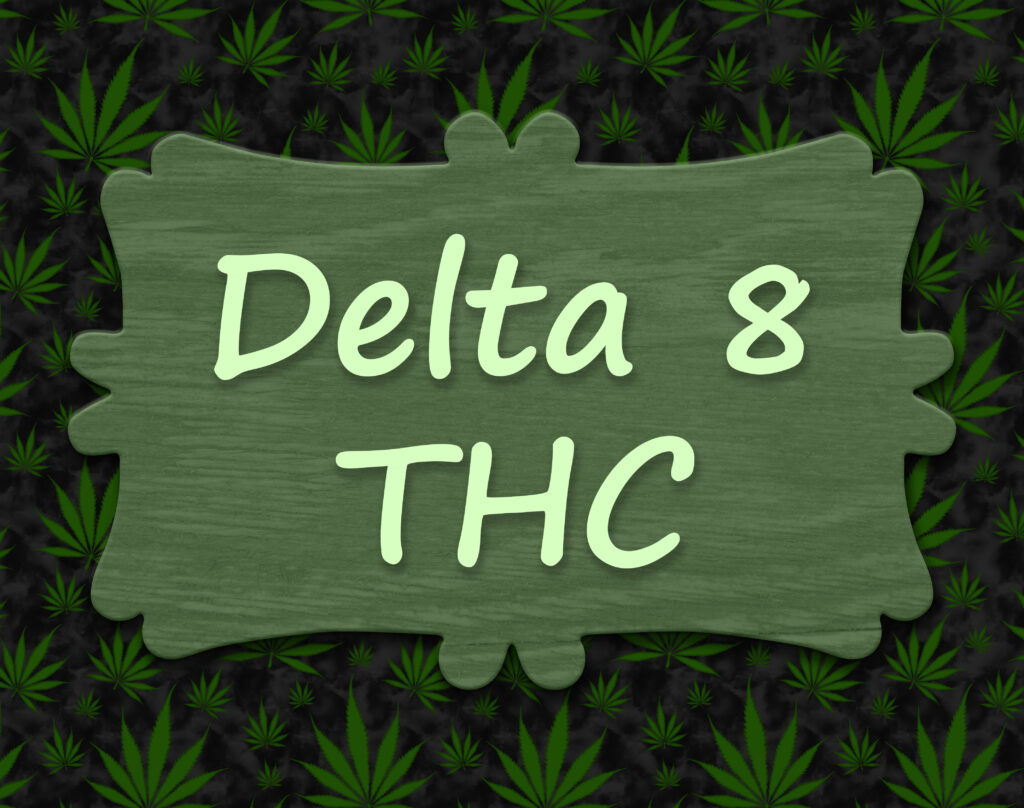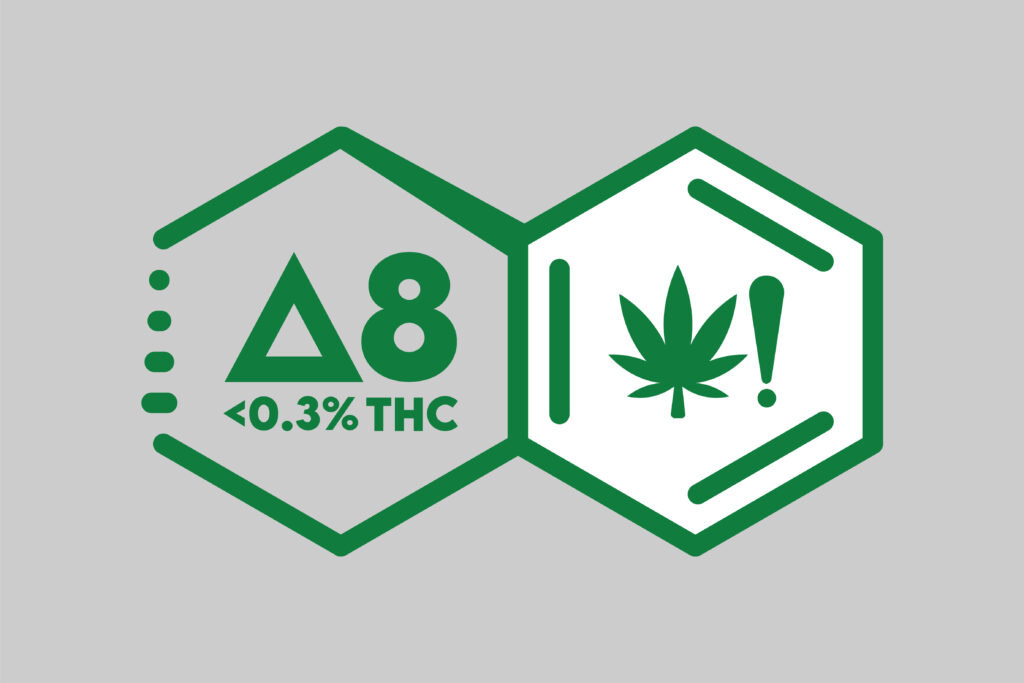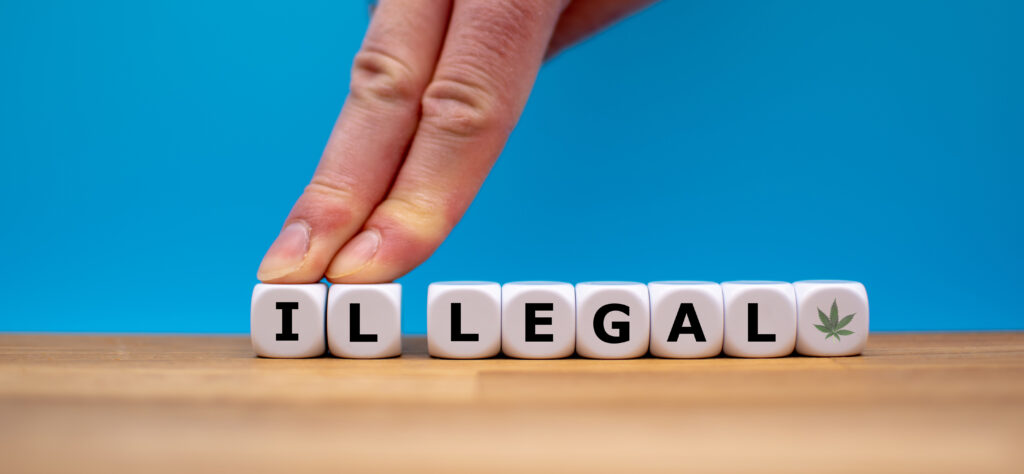Delta 8 vs Delta 9 vs Delta 10
- Updated on Feb 12, 2023

With so many new cannabis trends on the market, it can be hard to keep up. You might be wondering what delta 8 is and how it’s different from delta-9-tetrahydrocannabinol (“regular THC”) and the lesser known delta-10. While one of the most alluring aspects of delta-8 is that it is federally legal, in theory, and can be shipped, this component of THC has many other properties, benefits, and potential risks that must be considered. Below are ten facts about delta-8 that can help you understand the hemp-derived cannabinoid a little bit more.
What is Delta 8?
Delta 8 is a trace cannabinoid found in delta-9, or “regular THC”. Delta 8 is most commonly derived from the hemp plant, and while it shares many similarities with delta-9 THC, it is about half as strong and produces a slightly different high. Delta 8 provides access to cannabis products for consumers in states where delta-9 is still outlawed and has risen in popularity due to its widespread availability and lessened-yet-similar effects to delta-9.
Does Delta 8 Get You High?
Delta 8 provides similar, but lessened effects to delta-9. Euphoria, sedation, pain relief, a sense of well-being, and increased appetite are all things you can expect from delta-8, however say it offers a more sedating effect compared to delta-9. Many consumers prefer the more mellow high that delta 8 offers, so it can be a good choice for the canna-curious, beginners, or someone just wanting to consume during the day without being completely blitzed.
Delta 8 vs Delta 9 vs Delta 10 - Difference between Delta 8 and Delta 9?

Slightly different chemical structures, name, diminished effects, and greater availability nationwide are just a few things that set delta 8 apart from its parent, delta-9. THC’s scientific name is delta-9-tetrahydrocannabinol, or delta-9 THC, or just delta-9. Delta-8 is short for delta 8-tetrahydrocannabinol, or delta 8 THC, or just delta 8. Delta-8 binds to the endocannabinoid system in a slightly different fashion than delta-9, which is why it’s thought the effects are similar but less intense. All but a mirror of delta-9, delta-8 also has a lower incidence of anxiety and paranoia, a study states.
Is Delta 8 Legal?
Delta-8 remains federally decriminalized because it’s a by-product of hemp. Hemp was declassified as a schedule-1 substance in 2018’s Farm Bill, which states, “All derivatives, extracts, cannabinoids, isomers, acids, salts, and salts of isomers, whether growing or not, with a delta-9 tetrahydrocannabinol concentration of not more than 0.3 percent.” This, in effect, makes delta-8 legal, because it is derived from hemp, which typically contains trace amounts of THC less than 0.3%.

- Alaska
- Arizona
- Arkansas
- Colorado
- Delaware
- Idaho
- Iowa
- Mississippi
- Montana
- Rhode Island
- Utah

Ways to Consume Delta 8
Is Delta 8 Safe?
The issue with delta-8 products is that the majority of them are manufactured and sold outside of any state licensed or regulated spaces. That means there is no testing, and products can contain contaminants like vitamin E oil, residual solvents from processing, and heavy metals. The Cannabis Council, a national trade group representing state-licensed cannabis companies and legalization advocates, states, “the fact that it is being sold outside of the regulated marketplace with no oversight or testing and is readily available to children is alarming, and it presents a public health risk of potentially wider impact than the vape crisis”. While regulated delta-8 products are made by some licensed companies and tested according to regulations, the vast majority are not.
How is Delta 8 Manufactured?
While delta-8 is a naturally occurring cannabinoid, it must be lab-extracted to be isolated and made into oil. The first step is dissolving hemp-derived CBD with an organic solvent. The next step is adding a specific type of acid and stirring. Once the chemical reaction is complete the solution must be washed and neutralized with sodium bicarbonate. While the process is simple, and can be done at home by even an amateur chemist, a variety of by-products can still remain and purity is never 100%. This is why testing is so important, yet due to the unregulated nature of delta-8 products this almost never happens.
What is Delta 10?
Delta-10 is another trace cannabinoid found in delta-9, just like delta-8. Delta-10 is typically hemp-derived, as with delta-8, but unlike its counterpart it is very difficult to isolate and must be refined extensively. Many states have outlawed delta-10 and due to the difficulty of processing it is often combined with delta-8 in many products. Delta-10 requires many different chemicals to produce and therefore presents many of the same, if not more, risks present in delta-8. Providing a similar subdued high as delta-8, some consumers anecdotally report that delta-10 provides a more energizing effect.
Conclusion
Frequently Asked Questions
Delta 8: is most commonly derived from the hemp plant, and while it shares many similarities with delta-9 THC, it is about half as strong and produces a slightly different high
Delta 10: is typically hemp-derived, as with delta-8, but unlike its counterpart it is very difficult to isolate and must be refined extensively.
Delta 9: commonly referred as THC with its scientific name being delta-9-tetrahydrocannabinol, or delta-9 THC, or just delta-9
Delta-8 remains federally decriminalized because it’s a by-product of hemp
Related Articles
5 Ways To Consume CBD
Benefits and uses, 5 ways to consume, CBD oil vs tincture
What Are Terpenes
Learn about Terpenes types and effects
Indica vs Sativa vs Hybrid
Differences between Indica, Sativa, Hybrid and its effects.

